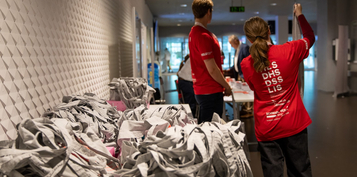Prof. Dr Sabine Pitteloud

Documents
CVSabine Pitteloud est depuis décembre 2023 professeure assistante en histoire contemporaine à UniDistance Suisse. Ses recherches portent sur l’histoire politique du capitalisme. Elle a en particulier étudié le rôle politique des entreprises multinationales et leur régulation en Suisse et à l’international. Actuellement, elle développe un nouveau programme de recherche qui analyse l’implication des associations patronales européennes dans la gouvernance environnementale après 1945. L’idée au cœur du projet est de mettre en lumière les réponses des industries polluantes face aux revendications et aux régulations environnementales et de comprendre leur coordination au niveau politique. Il s’agit également d’étudier les liens que les milieux patronaux développent avec les ministères de l’environnement nouvellement créés dans les années 1970.
Actualités


UniDistance Suisse aux 7e Journées suisses d’histoire

Leçon inaugurale de la Prof. Dr Sabine Pitteloud

Un nouveau Master en histoire contemporaine
Projets de recherche
Groupes de recherche
Histoire des entreprises et du capitalisme
Faculté d'histoire
-
2025-04 | RoutledgeBOTT Sandra // Pitteloud Sabine // SCHAUFELBUEHL Janick
Enseignement dispensé
Fonctions à UniDistance Suisse
Faculté d'histoire
- Vice-doyenne
- Direction de filière du Master en Histoire
- Professeure assistante
Histoire des entreprises et du capitalisme
- Professeure assistante
Collège de faculté d'histoire
- Vice-doyenne
- Direction de filière du Master en Histoire
- Professeure assistante
Faculté d'histoire
- Professeure assistante
- Responsable de filière du Master

